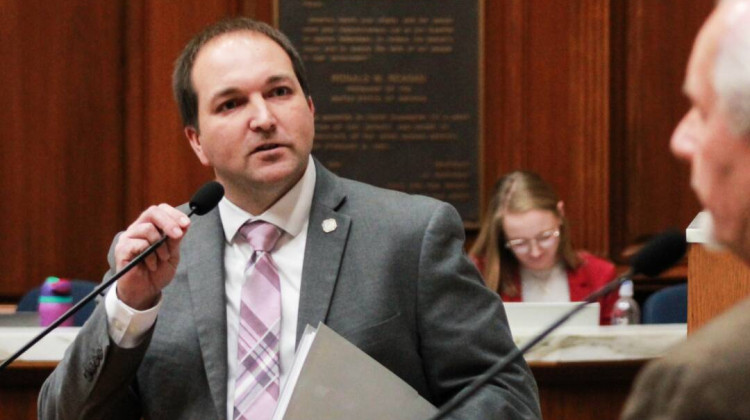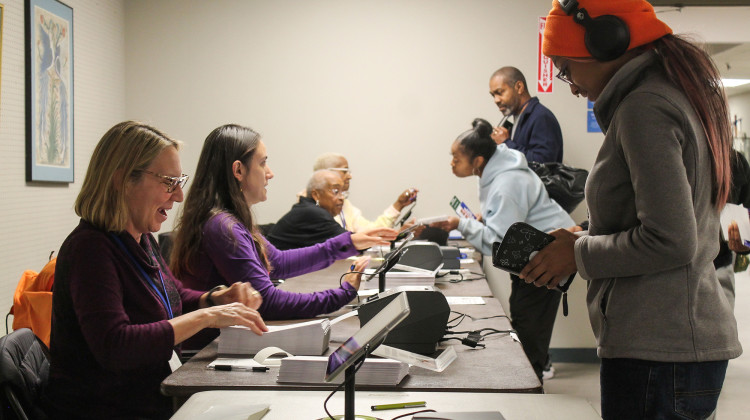
Unlike schools, preschools and daycare centers like Little Tid Bit Daycare in Bloomington — pictured here — aren't required to test their drinking water for lead. This bill would change that.
FILE PHOTO: Lindsey Wright/WTIUA state House bill, HB 1138, would require preschools and day care centers to test for lead and take action if lead levels are too high — likely by replacing faucets and other lead fixtures in the building.
The one exception would be child care run by a church — which was amended out of the bill by Rep. Alan Morrison (R-Brazil).
Kids with lead poisoning can have trouble learning, behavioral issues and poor kidney function. Gabe Filippelli directs the Center for Urban Health at IUPUI. He supports the bill and said that the U.S. has been “down-streaming” the lead problem for too long.
“We’ve been measuring and mapping lead-poisoned kids and then trying to figure out where they got their lead. That’s not the way to go about public health interventions — you have to get upstream of it. And so the upstream, in this case, means testing," Filippelli said.
Join the conversation and sign up for the Indiana Two-Way. Text "Indiana" to 73224. Your comments and questions in response to our weekly text help us find the answers you need on statewide issues, including this series on climate change and solutions.
Though there’s no safe level of lead, the Environmental Protection Agency recommends taking action if lead levels are above 15 parts per billion (ppb) in drinking water.
The bill's author, Rep. Carolyn Jackson (D-Hammond), said the agency has plans to lower that level.
“We won’t have to go back and change the bill, it will automatically change to the lower amount," she said.
For reference, the Food and Drug Administration doesn’t allow bottled water to have more than 5 ppb of lead.
This is the third year Jackson has proposed bills to test for lead in drinking water at preschools and day cares. It’s the first of those bills to pass committee. It now moves to the full House for consideration.
Jackson was successful in passing a law requiring lead testing in the drinking water at schools in 2020.
Rebecca is our energy and environment reporter. Contact her at rthiele@iu.edu or follow her on Twitter at @beckythiele.
9(MDAyMzk1MzA4MDE2MjY3OTY1MjM5ZDJjYQ000))
 DONATE
DONATE






 Support WFYI. We can't do it without you.
Support WFYI. We can't do it without you.